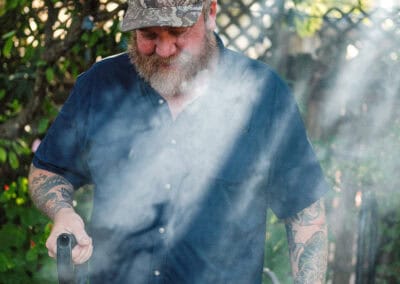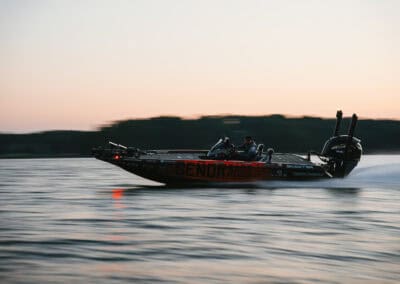Your cart is empty
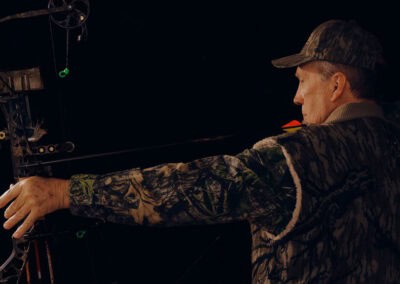
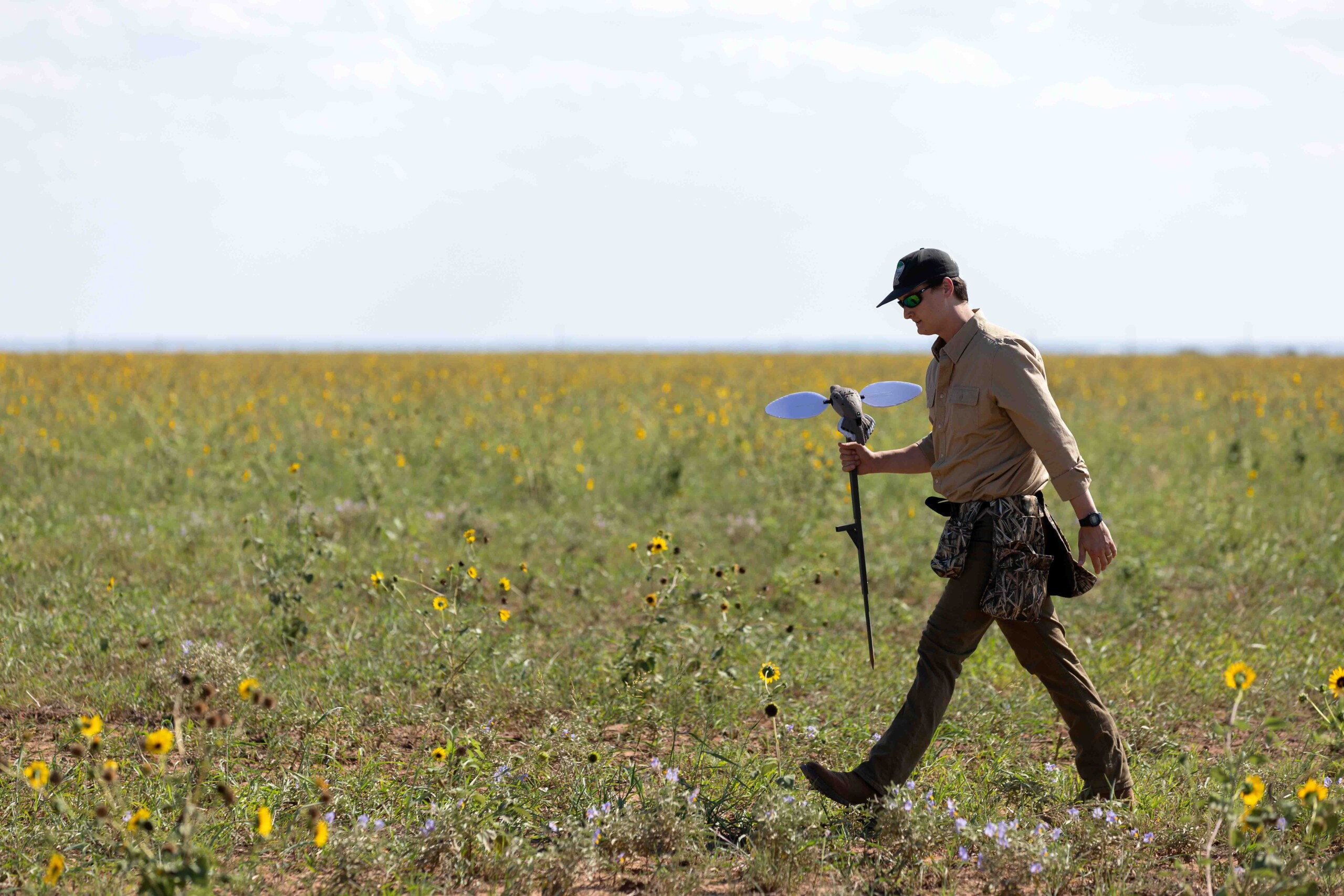
This isn’t my first dove hunt, but it’s my first dove hunt in Texas, and many proud Texans would tell me that I have misspoken and it is, in fact, my first dove hunt. By the end of my trip, I will humbly stand corrected.
Words by
Photos
Kristen Collie
Read Time
0 minutes
Posted
In a world of western brands that have rarely changed over many years and miles on the trail, Tecovas is considered the young gun of the bunch — having recently celebrated their 7th anniversary. But while they may have not been around as long as some western goods purveyors, they have led the charge in forging a new path of what the New West can mean and who can be a part of it. You can still honor the traditions of the past and create new ones for yourself – which is what this story is all about. To start a new chapter off right, our friends at Tecovas stepped up to support some good folks doing good things for conservation and be a part of a growing community in Texas called the Stewards of the Wild. And while this dove hunt may have come and gone already, it’s likely to be the first of many conservation forays for a brand set on writing a new story.
Presented By

Alongside a five-strand wire fence, I have tucked my ammo box into the shade of a mesquite tree. I reach up to tip my hat back off my forehead, affording myself an unfettered view of the sky.
I’m relaxed but ready. A field lies flat before me, quilted with the autumn yellow of sunflowers. I can watch the day coming and going; the horizon is wide. A convoy of trucks has parked around the circumference of the field, leaving plenty of space between rigs, breaking our large group down into social pockets that hover around coolers in energetic clouds of camaraderie. Across the space I can hear folks laughing, toasting the end of summer with cold beverages, hooting and hollering in high spirits.
The memories of past dove hunts seem to hang over the sunflower field, spicing the air and seasoning the breeze with a nostalgia that is palatable. It seems like this hunt, all the hunts to come and all the hunts that came before exist here and now, blooming endlessly and eternally, firmly tethered to the framework of tradition, which feels so solid and trustworthy that I slack my left hip and lean into the sunshine like it’s a sturdy fence post. I keep an eye on the seam between the earth and sky, the narrow realm where the doves fly, and when I see my first dove zoom past within range, I calmly mount my shotgun, track my target and pull the trigger. It falls, and I smile. It’s a great start to what will be a few splendid hours of shooting. I reach down to brush some fire ants off my boots and pant legs before I walk out to retrieve my bird. Nobody told me there would be ants.
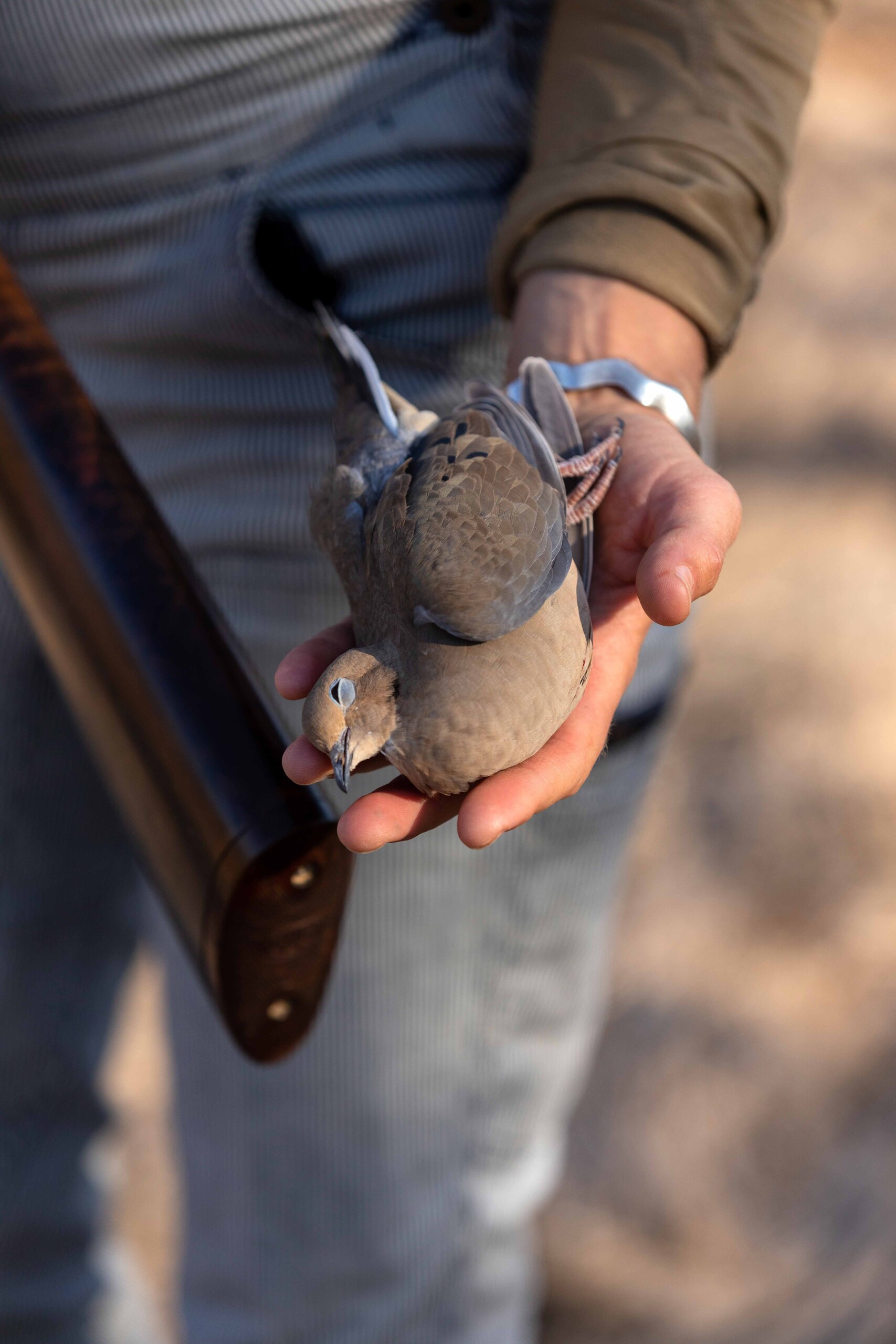
This isn’t my first dove hunt, but it’s my first dove hunt in Texas, and many proud Texans would tell me that I have misspoken and it is, in fact, my first dove hunt. By the end of my trip, I will humbly stand corrected.
I’ve traveled down from Idaho to an event hosted by Stewards of the Wild, a Texan conservation group that does a lot more than conservation. While preserving wild animals and wild spaces is at the heart of what they do, they’re also in the business of preventing Texas hunting culture from going extinct. Earlier in the day, I sought out a patch of shade between two converted WWII missile silos that now serve as an event center on the outskirts of Abilene, and I found myself talking to Katie Spurgin, the Program Manager of Stewards of the Wild. After greeting me with a wide smile, she took a break from overseeing the preparations for the evening festivities and offered me a quick lesson on the overall vision of Stewards of the Wild.
“Stewards welcomes experienced outdoors enthusiasts and newcomers alike, aiming to eliminate the intimidation factor from learning new skills like deer hunting or fly fishing,” she said. “Our mentorship program pairs new hunters with experienced hunters for hands-on, one-on-one learning… The end result is more people seeking to spend more time among our wild things, in our wild places and knowing what to do when they get there.”
Katie went on to tell me, “While many chapter-based organizations hold one or two events annually for the primary purpose of raising funds, Stewards exists to connect outdoor enthusiasts with similar interests, equip them with information about important conservation issues and provide opportunities to participate in outdoor experiences that would not otherwise be available.” She added that the organization “is creating the next generation of conservation leaders. By engaging more young adults in the outdoors and informing them on important conservation issues, our members are inspired to take care of our wild things and wild places.”
The proof is in the pudding. Members of Stewards of the Wild are informed hunters and anglers who show up, speak up and speak out against poor policy-making and legislation. They stand up for wild places and wildlife and the right of Texans to access both. Most importantly, they tend to place high value on cultivating relationships through mentorship. I can feel the camaraderie of the community they are building as the sound of it reverberates around the sunflower field later that afternoon.
Something that makes dove hunting in Texas special is the sheer number of birds. The mourning dove population is estimated at 20 million, and white-winged doves number 10 million, which adds up to plenty of wing-shooting opportunities for the 300,000 dove hunters in the state. In 2020-21, Texas hunters shot nearly 5.9 million doves and spent more than 1 million hunter days in the field, according to the Texas Parks and Wildlife Department’s small game harvest survey. Dove hunting is a big deal in Texas and not just because everything’s big here; there’s simply no place with better dove hunting in the USA. The numbers speak for themselves, but I remain curious about what draws individuals to this hunt.
I asked Phil Lamb, the Director of Philanthropy for Texas Parks and Wildlife Foundation, what attracts him to dove hunting in his home state, besides the significant presence of doves. He shared that for most people, it’s about spending time in the field with friends and family. He can remember specific moments and vivid details from past hunts decades later — notable events like someone’s first dove or first limit, how the birds flew, the hot weather or the cold and rain, how the dogs performed, the sunset, or even what song was playing on the truck radio when cleaning birds on the tailgate. Every year he recalls the sweetness of those moments and the minutiae that made them. He flashed a smile and said, “Those memories, and the opportunities to make more of them, are what keeps us counting down the days until the next dove season.”

Someone called Phil’s name, and he motioned that he’d be right there, but before we parted ways, he pointed out one more important aspect of dove hunting that allows for the boisterous, memory-making, social element — there’s no need for quiet and stealth in the field. No matter the degree of merriment, the size of the family or the number of friends present, the birds keep on flying on rapid wing beats over the aureate September fields. As far as I can see, this hunt is a celebration, and it makes sense to me why September 1st is treated by many as an unofficial holiday and even referred to by many as “Texas Christmas.”
Later that evening, I attend what could be best described as a hoedown with live music and food prepared by the inimitable Chef Jesse Griffith. I’m in a crowd of good-natured folks with recent suntans and that glow that only a perfectly mixed ranch water can provide. It’s a great group of people, and I find everyone approachable and welcoming. There’s no shortage of Texan charm as I drift in and out of conversations with strangers who become immediate friends, and I find myself earnestly enjoying the company of everyone I meet. My right shoulder might be suffering from recoil fatigue, but my heart is full, and I discover I have a sense of belonging to this group, to these people, even as an Idahoan.
I’ve just finished eating the most perfect enchilada in the greater universe and I’m settling into an apple cobbler dessert and conversation when a fella to my left looks at me and says loudly, to be heard over the live band, “I wanna dance! Do y’all two-step?” I’m obviously reluctant to abandon the sweet concoction I’m nibbling on, so he graciously turns to the table and unselfconsciously casts his query to the other ladies at hand. “Does anyone want to dance?”
A young woman on the far side of the table stands up and says, “Sure! I’ll dance with y’all.” Off they go to spin like stars around a wooden dance floor beneath the black and silver sky.
The evening carries on with great merriment, followed by an enormous raffle, and as I bounce between conversations, I have a chance to talk to Louie Sanchez, who happens to be a venerated, decade-long member of Stewards of the Wild. He is clearly passionate about the organization and cherishes the experiences he has taken away from their thoughtfully planned events. When I ask him to tell me more, he paints a picture with broad strokes: “I can tell you that all of those great experiences are strung together by laughter and campfires, mishaps and miracles, mentorship and fellowship. Whether it’s rafting down the Rio Grande, riding horses into Boquillas, hiking up the Guadalupe Mountains, or camping off the banks of Matagorda Bay, the feeling is the same … I am where I’m meant to be.” What a grand sentiment — it’s one I can relate to as a hunter and angler. Wherever I find myself outside, that’s where I belong, too.
When I ask him specifically about the Stewards of the Wild mentorship program and what it has meant for him in his hunting journey, he shares a story I find relatable. “I was lucky to have been selected for the mentored hunting program in December 2019. I harvested a couple of whitetail deer at a South Texas ranch, which I had sent for processing. I was called to pick up my order (which filled two extra-large ice chests) the same week the president announced a nationwide emergency, and stay-at-home orders shortly followed. It was a blessing to me and my family to have a freezer full of meat during a period of uncertainty, shortages and rationing of food. And we were extra blessed that what we had was plentiful enough to share with family and with neighbors. Since that time, I’ve gone to hunt and harvest again, and in my mentor I have a friend forever.” A byproduct of Stewards of the Wild cultivating community and promoting conservation within its membership is a group of Texans who are increasingly building their lives on foundations of independence and belief in their capabilities to provide for their families.
The night draws to an end, but the weekend isn’t over.
I sleep deeply and wake up to a screeching 5 a.m. alarm clock. I rise, pack up my belongings, and head out for a hot cup of coffee and a kolache. When I ask a gaggle of Texans, “What the heck is a kolache?” I receive a spectrum of answers. One lady, a Texas native who is clearly passionate about this delicacy, tells me a kolache is a savory breakfast pastry brought to Texas by Czech immigrants. Another fellow who is newly transplanted in the state offers up a slightly jaded description that has me laughing out loud — to him it’s just a glorified hotdog baked in a bun. Either way, breakfast is served and we are grateful. We load our trucks and head out to the fields for a morning shoot. This morning, as we reach the sunflower fields and creep our trucks around the edges to claim our shooting spots, I see the sun rising over the brushy landscape.
The sunrise burns clear of the horizon, sharp daylight broadcasts itself over the land and the doves begin to fly. This morning I’ve parked myself near Michael and Channing Flanagan, a young couple who call Dallas home. As I load a couple of shells in my gun, I ask them why they became members of Stewards of the Wild. Michael tells me, “I was drawn to Stewards of the Wild more than anything by the willingness of its members to try to promote the exact things that were so difficult for non-hunters to attain: skills to hunt on your own and the opportunities to do so.” He adds, “Texas is over 96% privately owned, so it was very difficult to find land and opportunity to hunt without a network of like-minded hunters, and growing up in a suburb essentially ruled that out for me.” Michael’s story is echoed by many of the people I speak with over the weekend. These folks had it in their hearts to hunt and fish but weren’t sure where to begin. Stewards of the Wild provided them with a clear direction and a community that granted them the resources and relationships they needed to get out on the land or on the water. I reside in a state that is rich with public lands — the most difficult thing about hunting is narrowing down the what and the where of it all. The possibilities seem endless in Idaho. I find myself filled with admiration for what Stewards of the Wild is building for its members: a place for everyone in the field and on the water, regardless of an individual’s social status or means.
Doves fly over and we pop off some shots. Everyone seems a little rusty this morning, and our opportunities are sporadic, so I find myself having a nice chat with Channing — we have to shout at each other to hear through our ear plugs. She grew up in Mississippi in a family where the boys and men hunted quite avidly, but she wasn’t ever invited or offered a place in the field. She says, in a lovely drawl that sounds downright exotic to me, that hunting in Mississippi was for boys. When she met Michael, the men in her family initiated him by taking him raccoon hunting, and shortly thereafter the couple became members of Stewards of the Wild and have missed only two events since. What they appreciate most about the organization is how it sets them free from the extremely urban space they live in, giving them a place to go on weekends that isn’t a bar or restaurant in the concrete jungle of Dallas. They both crave wide-open, untamed spaces and want to do the best of their living out here with snake boots on their feet, shotguns in hand and lunchtime kolaches in their gear bags (squashed but still edible at noon).
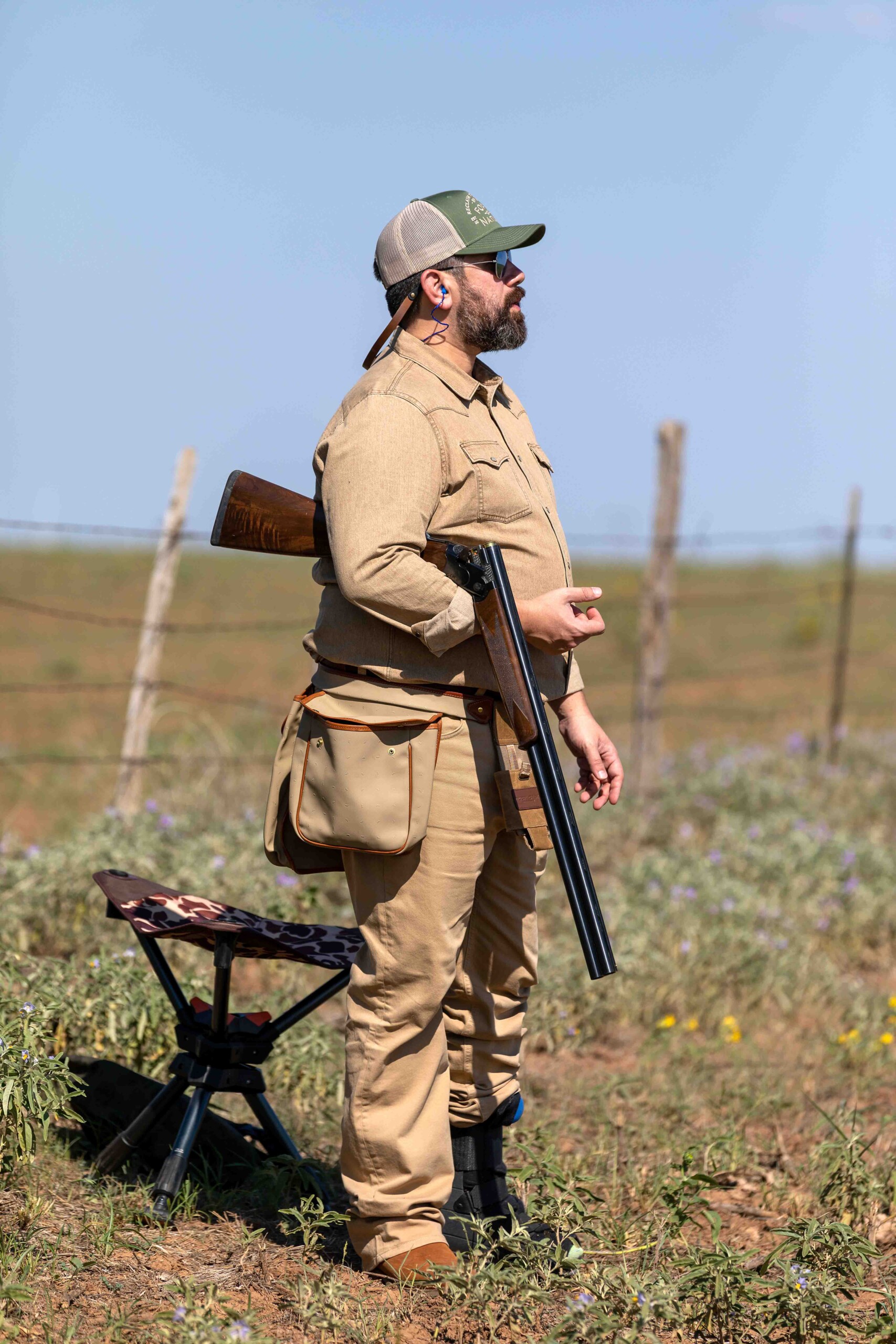
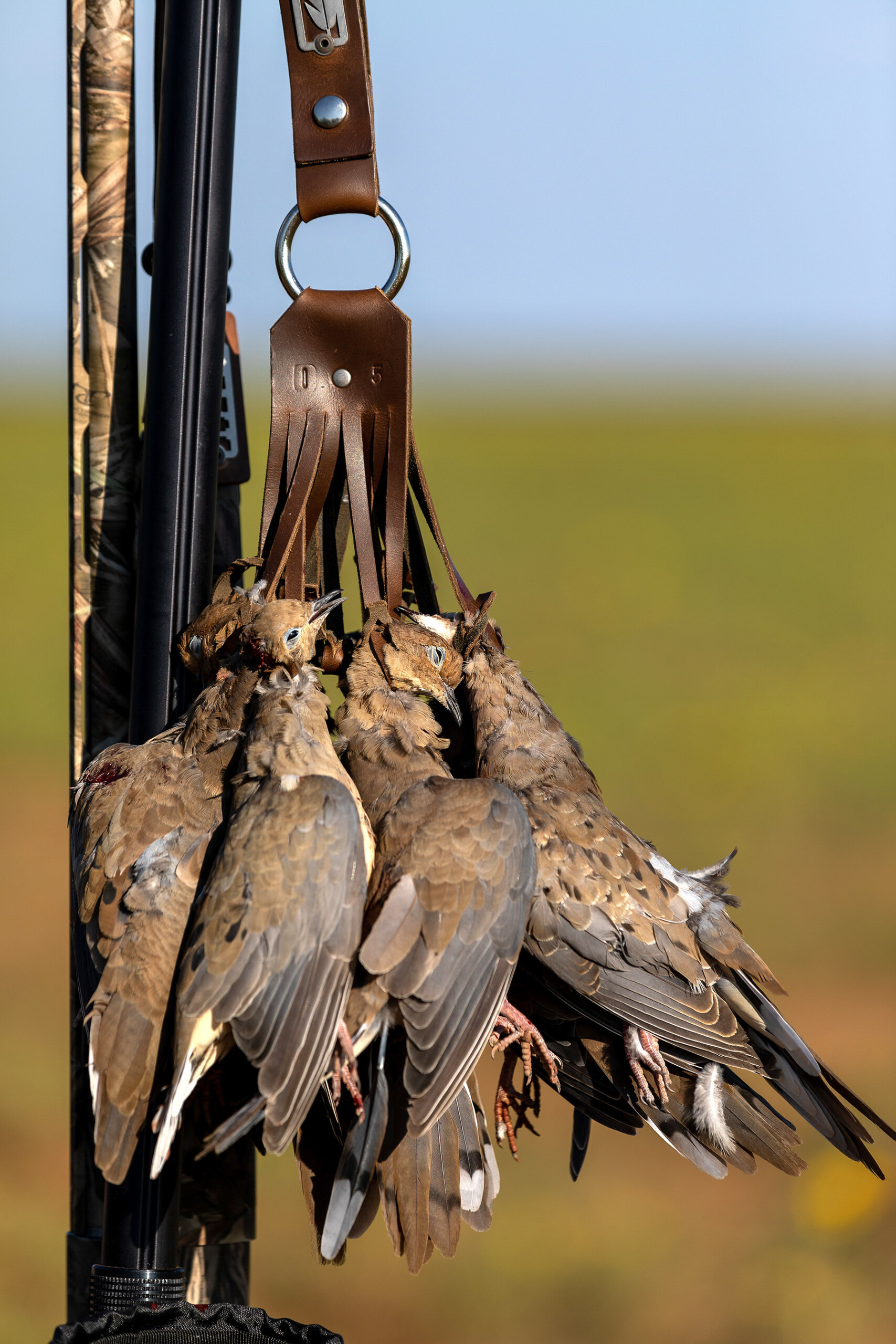
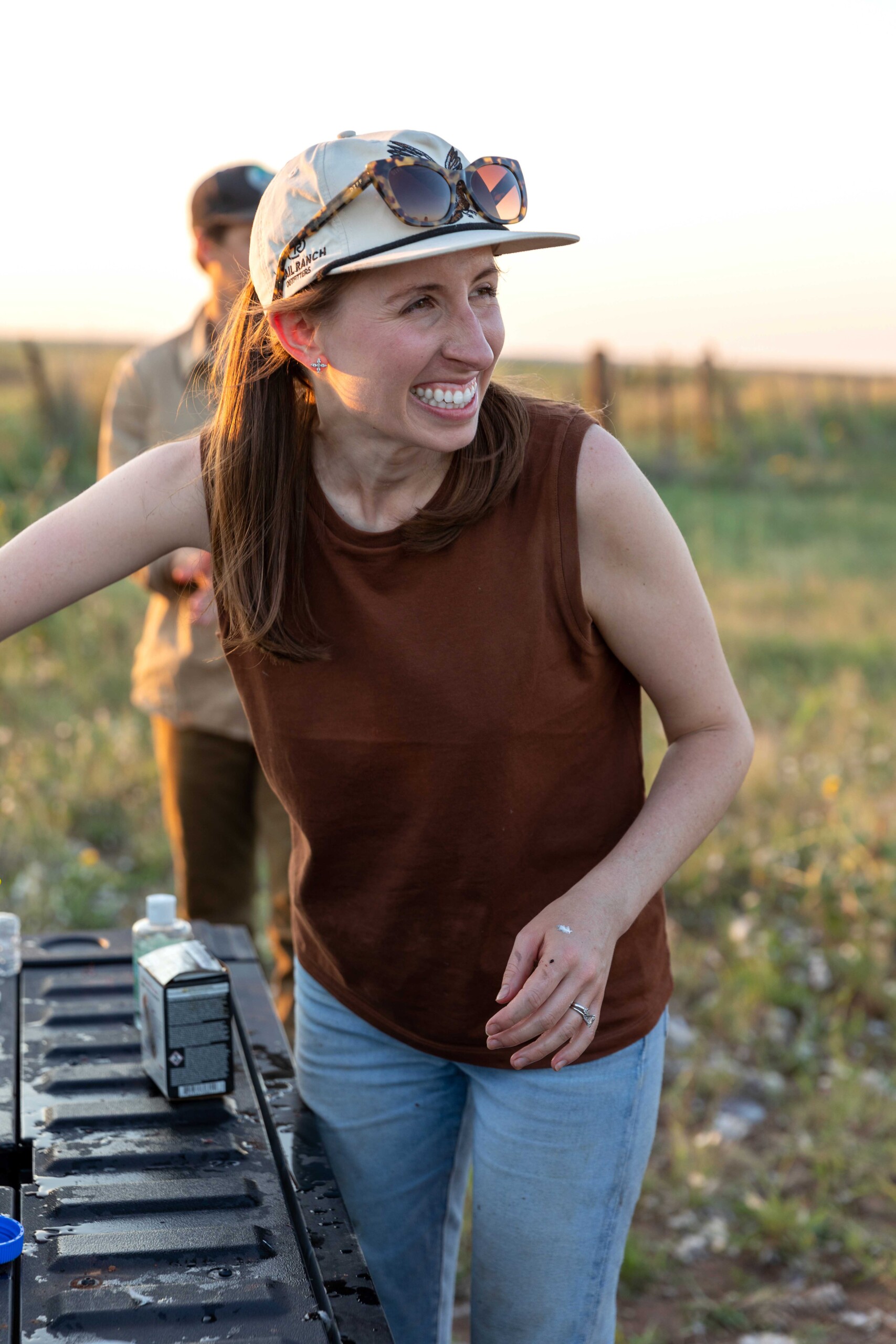
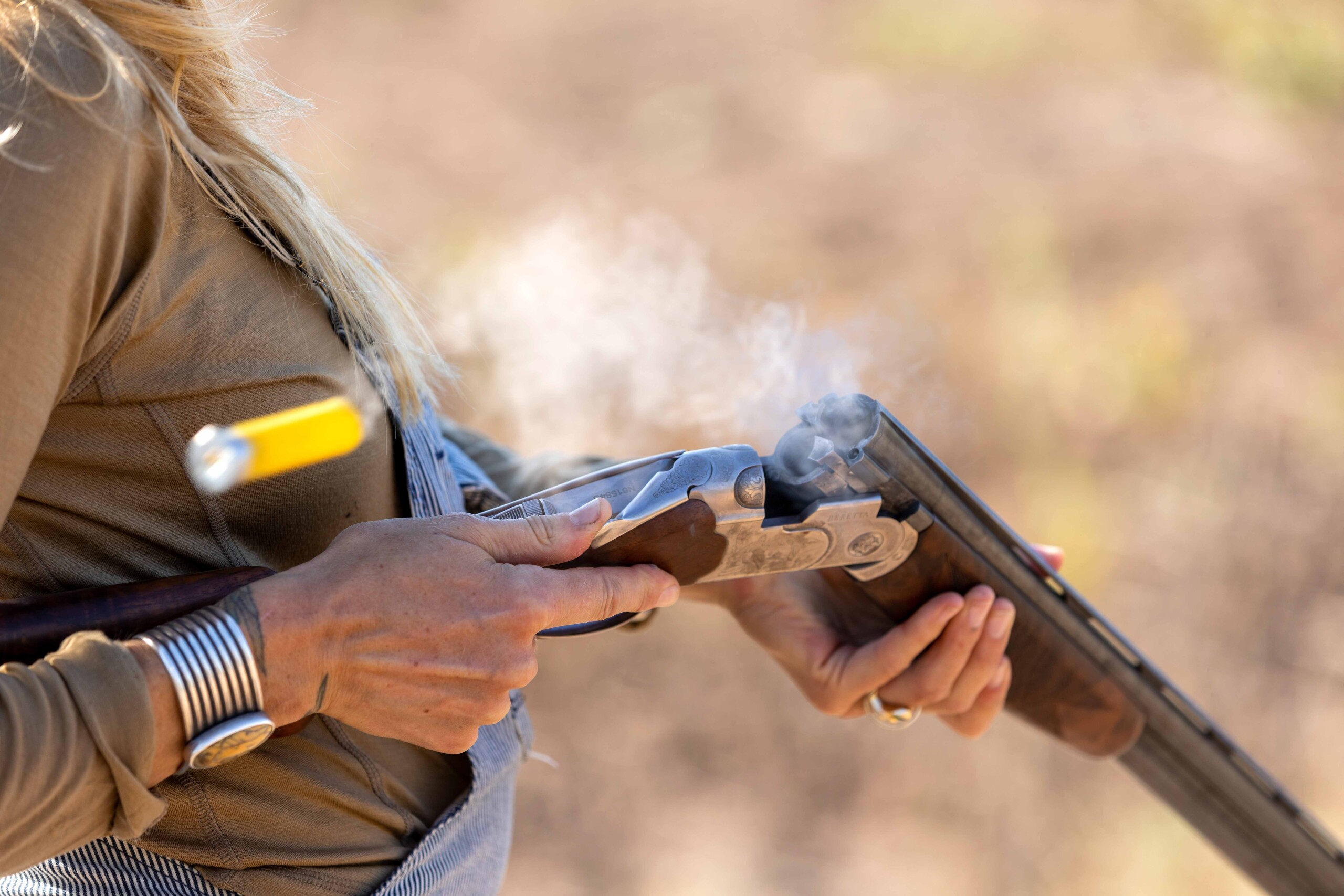
Channing points at the ground and warns me about a highway of ants we’re standing on — I sidestep like I’m barefoot and the ground is hot lava. When I ask her what she likes most about Stewards of the Wild besides the opportunities it makes available to her little family, she tells me how much she appreciates the community. “The men in the group are so respectful and truly give women a seat at the table, or should I say a seat in the blind. It is an incredibly supportive group that is always willing to answer a question, lend a hand and say ‘come hunt at my family’s place this weekend,’ and everyone means it.”
But it’s not just the goodness of the men who hold memberships, Channing tells me. “The ladies of SOTW are so supportive, and they build each other up and it is so wonderful to be part of a group where women are sitting on the board or chairing a male-dominated industry and they actually enjoy and make time for nurturing friendships.”
I agree with her. I have felt nothing but warmth and openness and generosity from every woman I have met in the past 48 hours. These ladies are here to be part of something, to contribute, to connect, and they have the sort of legendary Southern hospitality that breaks ice, builds bonds and eases nerves. I find myself feeling overjoyed for Channing and all the women who are members of Stewards of the Wild, that they can be out here with men and women of all sorts, making memories and feeling truly at home with their ambitions in the field.
Channing and I scoot our gear over to put some distance between ourselves and the ants. She calls out, “Dove!” and drops a bird. Shortly after, I shoot my first dove of the day, too. Suddenly there’s action all over the field, and I can hear shotguns singing in all four directions, cheers of success, laughter, all the beautiful sounds that are the fruit of what Stewards of the Wild has built.
It’s hard to not talk with Channing, who is big hearted and a little silver-tongued, to boot. She tells me, “Opening season signals so many changes. A change in pace to slow down and look forward to the harvest season, cooler weather, big moons and slower animals. I love to watch the animals get a bit lackadaisical as the days get shorter… You’re in some of the most beautiful fields, where blue skies paint themselves purple, orange and red against a yellow sea of sunflowers. Some years are better than others as far as a harvest. Too much rain, too little rain, a late freeze or sweltering summer will inevitably change opening day. And by change I mean you might see 100 doves or you might eat crow, but as long as you have a cooler with beer, it’s a good day no matter how many birds you bag.”
I inquire as to whether or not she and Michael have developed any family traditions with regards to hunting. “I’ve hosted about 40 people for friendsgiving over the last seven years. Two of those seven years, my now-husband and I have served wild game as the appetizer, and it is delightful for someone who adores standing over a stove or cast iron to watch someone who has only ever indulged in chicken and cow to have their first bite of a dove fried whole or wild turkey nuggets. We’ll be serving wild game for the third Thanksgiving in a row and I think it’s becoming a tradition within a tradition.”
I’m of the opinion that just as it is built into our DNA to hunt and fish and forage, so it is also in our DNA to share our harvests with the people we cherish. It’s sharing that keeps us human in a modern world that strives to make us numb to our humanity. Channing isn’t quick to let go of the old ways. She tells me, “I do prefer old traditions… It is vital to protect old traditions and be mindful and willing to accept new ones. Old traditions were once new traditions, so it’s a never-ending cycle. Protect, value and evolve the old. Usher in new traditions gently with care and nurturing so that new generations will be willing to partake in and grow new traditions all while conserving those from the past.”
Traditions within traditions. It’s hard to think of an organization fostering this idea and putting it to practice better than Stewards of the Wild — instead of tearing down the past and building a glittering new future, they’re building something new within the edges of an old framework, honoring the past while gazing thoughtfully into the future. I marvel at the experience SOTW has curated for its members around this sunflower field. The marrow of the weekend is tucked away like the true treasure it is, and when I coax it forth and hollow out the bone, I witness humans connecting with land, sky, wildlife and each other; I see a catalyst for memory making and an infinite classroom brimming with the energy of generous instructors and enthusiastic students. Texas is big enough to hold space for everyone to pursue their dreams, and for some, a limit of doves is the dream worth living.
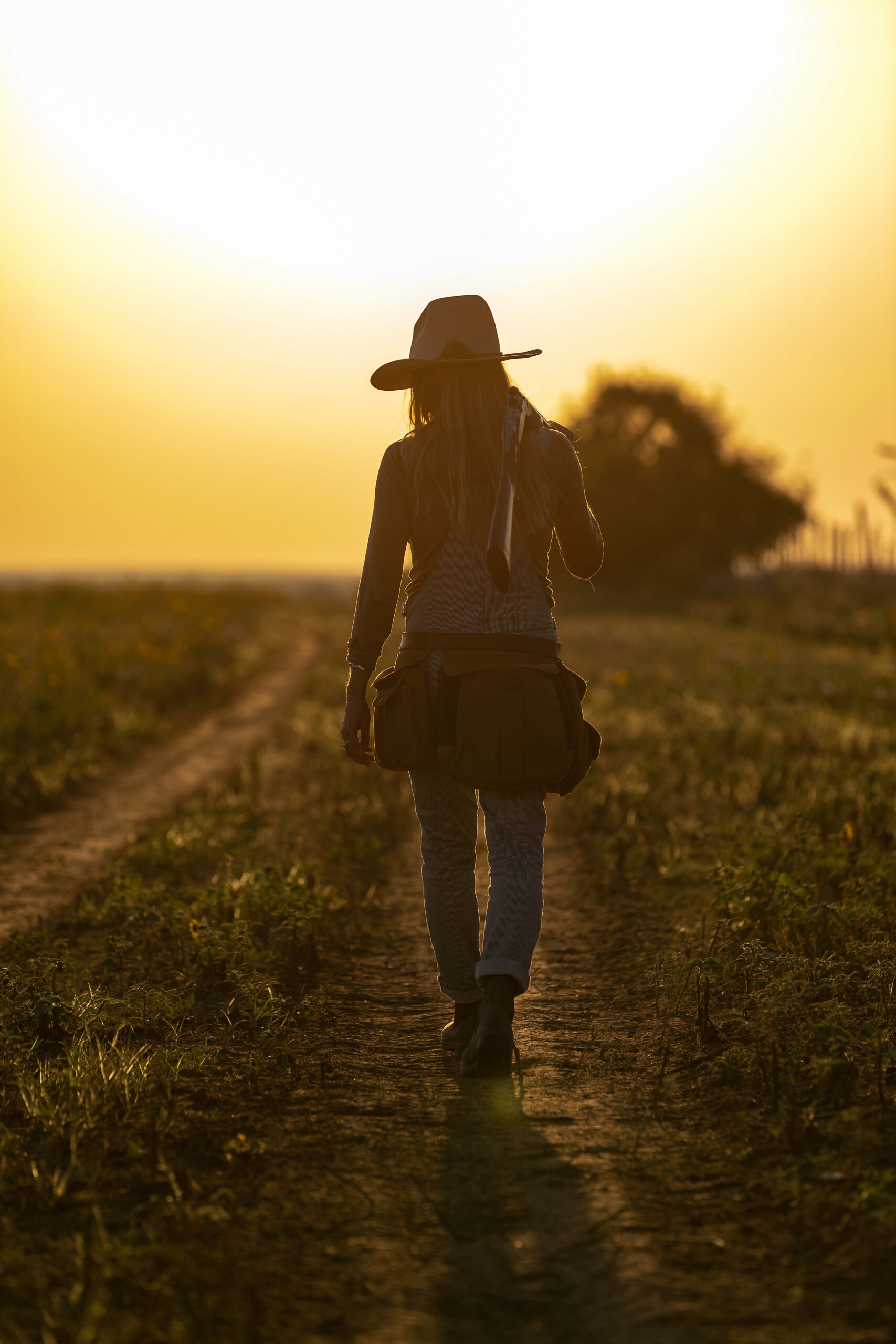
Stay tuned for an upcoming podcast episode that will dive deeper into the Stewards of the Wild mission.
Related Stories

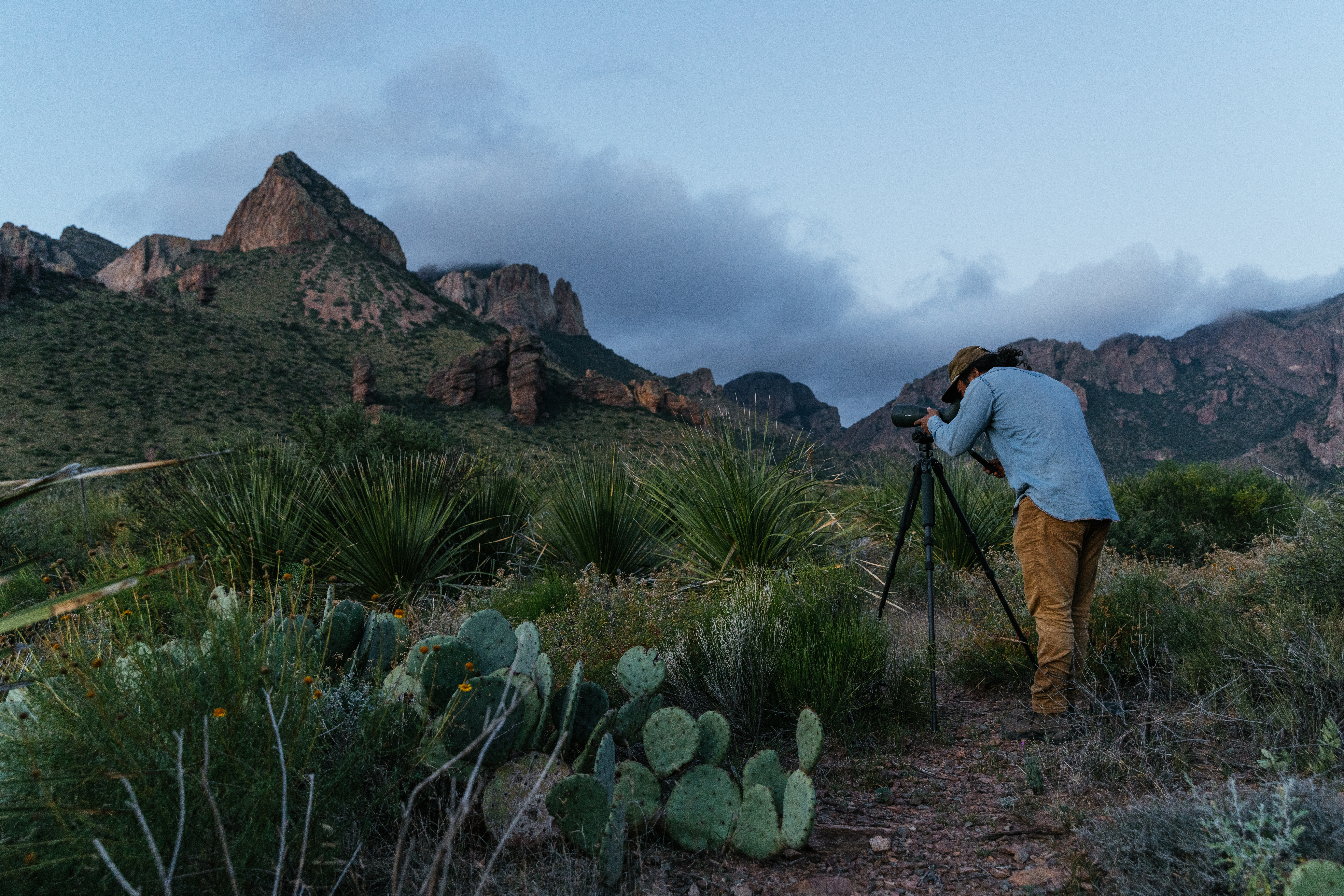
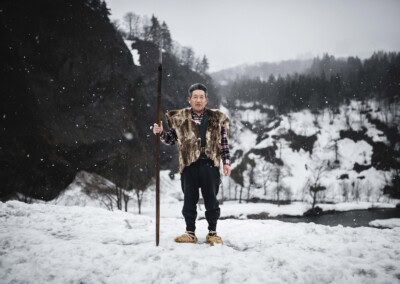
Latest Stories
